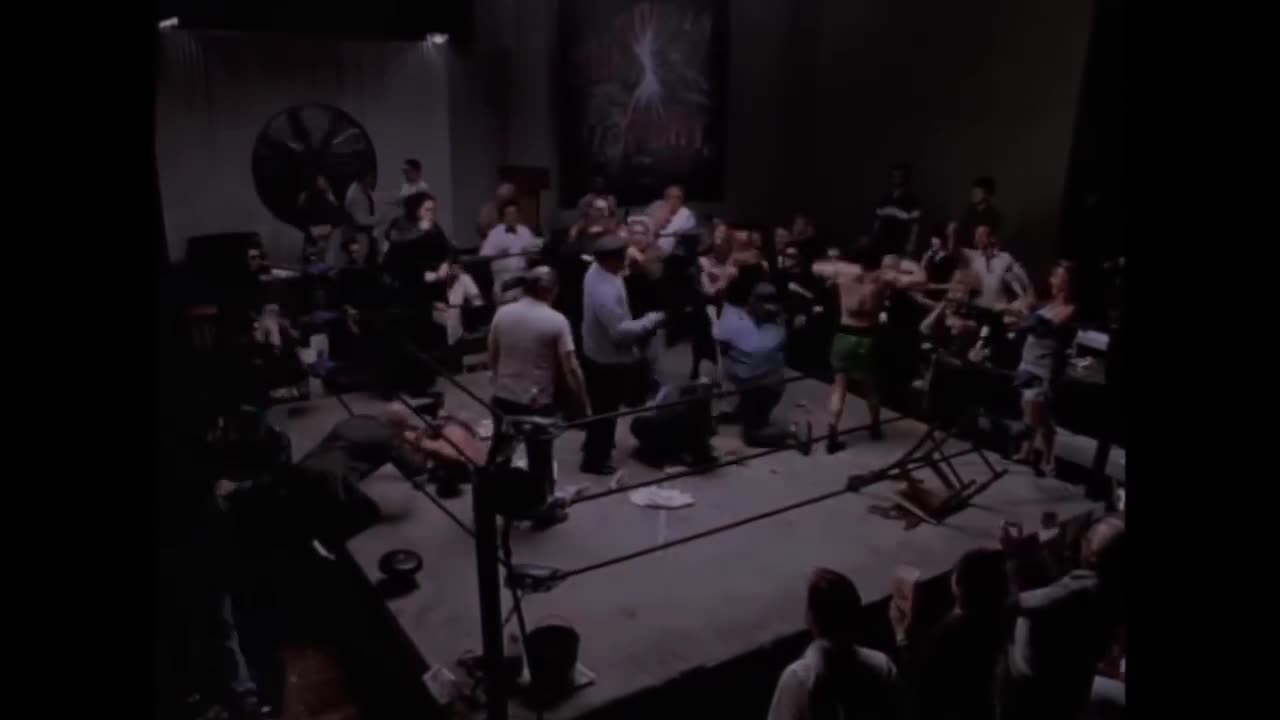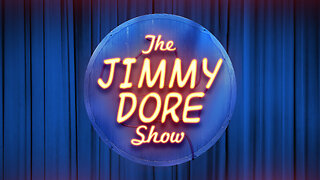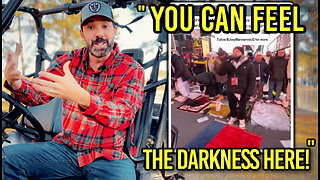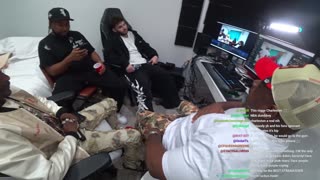Premium Only Content

House Of Pain - On Point
House of Pain's "On Point," released in 1994 as the lead single from their sophomore album Same as It Ever Was, is a gritty, high-energy hip-hop anthem that embodies the group's signature blend of brash bravado, streetwise lyricism, and unapologetic Irish-American swagger. Clocking in at just over three minutes, the track pulses with aggressive rhymes delivered by Everlast and Danny Boy, backed by DJ Lethal's turntable scratches and a hard-hitting beat produced by the crew themselves. It's a boastful declaration of lyrical dominance and street credibility, where the MCs paint themselves as resurrected outlaws—rising from the grave, dodging cops with stolen Glocks, and dismissing posh pretenders like Calvin Klein and the British monarchy in favor of raw, unfiltered rebellion. The infectious chorus—"When it's time to rock a funky joint (I'm on point!) / When it's time to rock a funky jam (I'm the man!)—serves as a rally cry, evoking the chaotic energy of underground brawls, with the music video amplifying this through scenes of an illicit boxing match in a dimly lit warehouse. Notably, this is the only House of Pain track to feature a verse from DJ Lethal, adding a layer of crew unity to its defiant vibe. At its core, "On Point" is less about introspection and more about claiming space in a cutthroat rap landscape, much like the group's earlier smash "Jump Around" (https://www.youtube.com/watch?v=XhzpxjuwZy0), but with a sharper edge honed by their experiences in LA's volatile hip-hop scene.
Woven into this sonic punch is a nod to the deeper undercurrents of Irish-American identity, a thread that runs through House of Pain's entire catalog and reflects their own roots. Formed in 1991 by Irish-descended rappers Everlast (Erik Schrody, from a working-class Valley family with ties to Boston's Irish enclaves) and Danny Boy (Daniel O'Connor, whose lineage traces back to Ireland's famine-driven exodus), alongside Latvian DJ Lethal (Leor Dimant), the group channeled the archetype of the "rowdy Irish-American hooligan"—a stereotype born from the harsh realities of 19th-century immigration (https://www.history.com/news/when-america-despised-the-irish-the-19th-centurys-refugee-crisis). Fleeing the Great Famine of the 1840s, over a million Irish poured into U.S. ports like New York, Boston, and Philadelphia, only to face "No Irish Need Apply" signs, squalid tenements, and brutal discrimination as the cheapest labor for railroads, factories, and canals. In these overcrowded urban cauldrons—think Hell's Kitchen in Manhattan or South Boston's combative neighborhoods—poverty bred resilience and rivalry, birthing a culture of bare-knuckle boxing, clandestine distilleries, and tightly knit fraternal orders that doubled as mutual aid societies. But it also spawned street gangs, like New York's Whyos (infamous for razor-slashing initiations) and the Westies (a later echo in Hell's Kitchen's Irish mafia, romanticized in films like The Departed), or Boston's equally notorious Mullen Gang, which terrorized the 1970s with protection rackets and turf wars against Italian and Black factions (https://www.history.com/topics/immigration/irish-immigrant-wave). These weren't just criminal outfits; they were survival networks in a system that viewed Irish Catholics as subhuman, fueling a legacy of "shit-kicking, liquor-soaked hoodlums" who fought back with fists, wits, and whiskey-fueled defiance (https://www.irishcentral.com/roots/history/irish-gangs-new-york).
House of Pain didn't invent this lore—they embodied it, transplanting it to 1990s Los Angeles, where Everlast and Danny Boy, high school buds from Taft High (the same alma mater as Ice Cube), traded punk-rock mosh pits for hip-hop cyphers amid the city's multi-ethnic gang landscape (https://www.latimes.com/archives/la-xpm-1992-09-20-ca-10154-story.html). Danny Boy, in particular, drew from personal scrapes, including a juvenile stint that immersed him in East LA's Mexican-American crews, mirroring how Irish immigrants once clashed (and allied) with other marginalized groups in America's ethnic powder kegs (https://www.vice.com/en/article/9bz4z3/house-of-pain-20-years-of-jump-around). Lyrics like "Back in the days there were Irish ways / And Irish laws, stand up for the cause" in "On Point" aren't mere flavor—they're a reclamation of that fighter's ethos, swapping shillelaghs for rhymes to "stand up for the cause" against cultural erasure (https://genius.com/House-of-pain-on-point-lyrics). In a genre dominated by Black narratives of the streets, House of Pain flipped the script, proving white ethnics could claim gangster authenticity without appropriation, all while packing venues with fans leaping to their beats. By their 1996 breakup, they'd sold millions, but their fusion endures as a testament to how immigrant grit—from famine ships to rap stages—turns pain into power.
-
 4:01
4:01
NatalieGWinters
22 days agoWatership Down • Bright Eyes • Art Garfunkel
911 -
 1:00:02
1:00:02
BonginoReport
2 hours agoBlue Wave Crashes Over The Nation On Election Night - Nightly Scroll w/ Hayley Caronia (Ep.171)
86.8K47 -
 LIVE
LIVE
The Jimmy Dore Show
2 hours agoMamdani’s BIG WIN for the Powerful! Candace Owens SHOCKER About Kirk Assassination! w/ Russ Dobular
7,984 watching -
 5:49
5:49
Buddy Brown
6 hours agoTake a Look at the Outdoor MOSQUES in TIMES SQUARE after MAMDANI Win | Buddy Brown
50410 -
 18:15
18:15
ArynneWexler
3 hours agoThe Fall of New York - How Zohran Mamdani Won | NN8
1532 -
 1:30:53
1:30:53
Kim Iversen
3 hours agoAmerica Under INVASION - Sharia Law Wins In New York City?
91.8K200 -
 50:45
50:45
Redacted News
3 hours agoNick Fuentes & Tucker Carlson DESTROY Ben Shapiro, Cuomo collapses to a socialist | Redacted
44.3K112 -
 7:09:41
7:09:41
Dr Disrespect
8 hours ago🔴LIVE - DR DISRESPECT - BATTLEFIELD 6 - REDSEC - 10 WINS CHALLENGE
185K11 -
 LIVE
LIVE
Akademiks
3 hours agoAdin Ross x 6ix9ine x Akademiks stream
614 watching -
 LIVE
LIVE
StoneMountain64
5 hours agoBattlefield REDSEC HARDCORE, Ultra Movement, and CRAZY Portal Games
106 watching